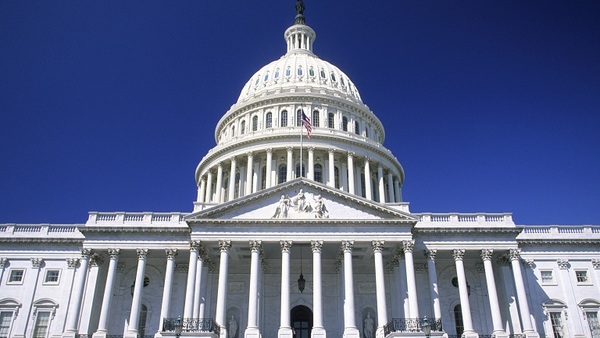
The battle lines in the House debate over an overhaul of Dodd-Frank were drawn clearly Wednesday, as Republicans touted their legislation to change the financial regulatory regime and Democrats painted the plan as wrongheaded.
“Dodd-Frank has been a greater burden to enterprise than all other Obama-era regulations combined,” House Financial Services Chairman Jeb Hensarling (R-Texas) said at the start of a hearing on his Financial CHOICE Act.
Hensarling said that Dodd-Frank led to “politicized lending,” and singled out the CFPB as a “rogue agency” that makes up its own law.
But House Financial Services ranking Democrat Maxine Waters (D-Calif.) said the bill is dead on arrival, adding that “This bill must not become law.”
Throughout the hearing, Democrats referred to the CHOICE Act as the “Wrong CHOICE Act.”
And Waters said that Democrats will hold its own hearing on the legislation, adding that such a hearing can be called under the committee’s rules.
The Financial Services Committee may mark up the legislation on May 2 and it is unlikely to attract Democratic support. The Senate is unlikely to accept much of Hensarling’s bill. Senate Banking Chairman Mike Crapo (R-Id.) and the committee’s ranking Democrat, Sherrod Brown of Ohio are attempting to approach Dodd-Frank changes on a bipartisan basis.
During Wednesday’s hearing, Rep. Brad Sherman (D-Calif.) asked Hensarling to break up his bill into several pieces, saying some of the proposals might attract Democratic support if they were voted on separately.
Rep. Stephen Lynch (D-Mass.) said the bill might be the worst piece of legislation he has seen, adding that he wanted to give Republicans credit.
“I have never seen so many bad ideas crammed into one bill,” Neal said.
But in written and oral testimony, several witnesses said that Hensarling’s legislation is essential, saying that Dodd-Frank was the wrong approach to solving the economic crisis.
“One way to understand the act and the need for the comprehensive reform that the CHOICE Act provides, is to recognize that the Dodd-Frank Act was completely unnecessary,” said Peter Wallison, a senior fellow at the conservative American Enterprise Institute.,
And referring to the financial crisis, he added, “No one, either among the regulators or in Congress, wanted to take the blame, or even find out the truth, so the banks became the scapegoat and Dodd-Frank was fastened onto the American economy.”
Another witness also singled out the CFPB.
“The CHOICE Act greatly improves the status quo by… making the CFPB director removable at will, putting the agency through the regular appropriations process, eliminating the abusive behavior concept, and relegating the CFPB to an enforcement-only agency,” said Norbert J. Michel, a senior research fellow at the conservative Heritage Foundation.
However, Michael S. Barr, a law professor at the University of Michigan Law School, said the CFPB has done its job.
“Congress created the [CFPB] to protect people from harmful and abusive financial practices,” he said. “And that is exactly what the consumer bureau has done; in just six years, the agency has secured nearly $12 billion in relief for more than 29 million consumers.”
He said that Hensarling’s bill would cripple the agency through a wide-ranging set of procedural changes, blocking it from issuing rules in several areas.
“American consumers cannot afford to see the CFPB weakened or its director fired,” he said.
Hester Peirce, director of the Financial Markets Working Group at the Mercatus Center at George Mason University, said the bill’s provision requiring Congress to approve major agency rules builds accountability into the regulatory process.
“With the benefit of the agency’s economic analysis, Congress may conclude that—perhaps contrary to expectations when the authorizing legislation was passed—the rule is more costly, less beneficial, or less effective than alternative approaches,” he said.


